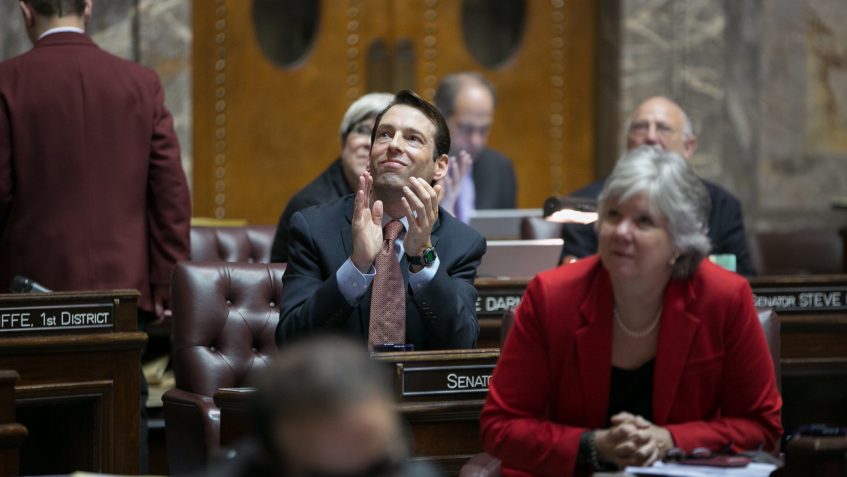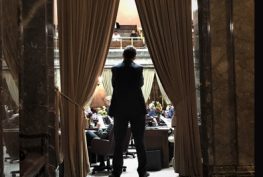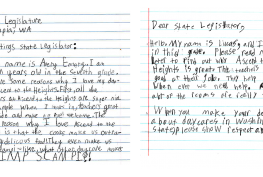Bipartisan legislation to bring more transparency to campaign finance in Washington passed the Senate floor today on a unanimous 49-0 vote.
Sen. Andy Billig, D-Spokane and author of SB 5153, applauded the Senate for acting on the important bill to ensure transparency for voters, and encouraged the House to pass the bill to the governor’s desk for signature.
“For the past several years, I’ve worked to advance legislation that would bring much-needed transparency to Washington political campaigns,” said Billig. “Voters count on accurate and complete information about who is funding the electoral campaigns in our state, and in recent years increasingly sophisticated political operations have found and exploited loopholes in our laws. This long-overdue measure would close these loopholes and ensure that voters get the information they count on.”
Billig’s legislation as amended on the Senate floor would require organizations participating in state and local political campaigns not previously registered as political action committees, including 501(c)4s and (c)6s, to register with the state Public Disclosure Commission and disclose their contributions and expenditures.
The bill would require disclosure of their top ten largest sources of funds that are greater than $10,000, and any additional donors in excess of $100,000. It would not require an organization to file with the Public Disclosure Commission until the organization has spent or contributed at least $25,000.
“We heard some concerns about whether the reporting requirements would even be feasible for some types of organizations that hardly participate in campaigns, so it seemed reasonable to amend the bill to focus on the organizations that most often participate in state political campaigns, to allow the bill to move forward,” said Billig.
“Increased transparency in campaigns leads to better-informed voters, reduces the opportunity for corruption, and holds accountable those attempting to influence our elections. In short, transparency in in campaigns leads to a healthier democracy.”
The limits of Washington’s current campaign finance disclosure laws have become evident in the past two years as the financial structures of political committees have become increasingly sophisticated and opaque. In the 2014 election cycle, an independent organization spending money in a legislative election was able to use its non-profit status to avoid disclosing its donors. In 2013, political committees on both sides of the aisle used their non-profit status to avoid disclosure of millions of dollars in campaign contributions. The Grocery Manufacturers’ Association avoided disclosure for donors after spending more than $11 million to fund an organization opposed to Initiative 522. It was only after the discovery of a specific fundraising e-mail that the attorney general was able to require disclosure. Also in 2013, Working Washington — a registered nonprofit — raised more than $250,000 in support of the SeaTac minimum wage initiative but did not release the names of its donors. SB 5153 would have applied to all of these cases and required timely disclosure of donors.





